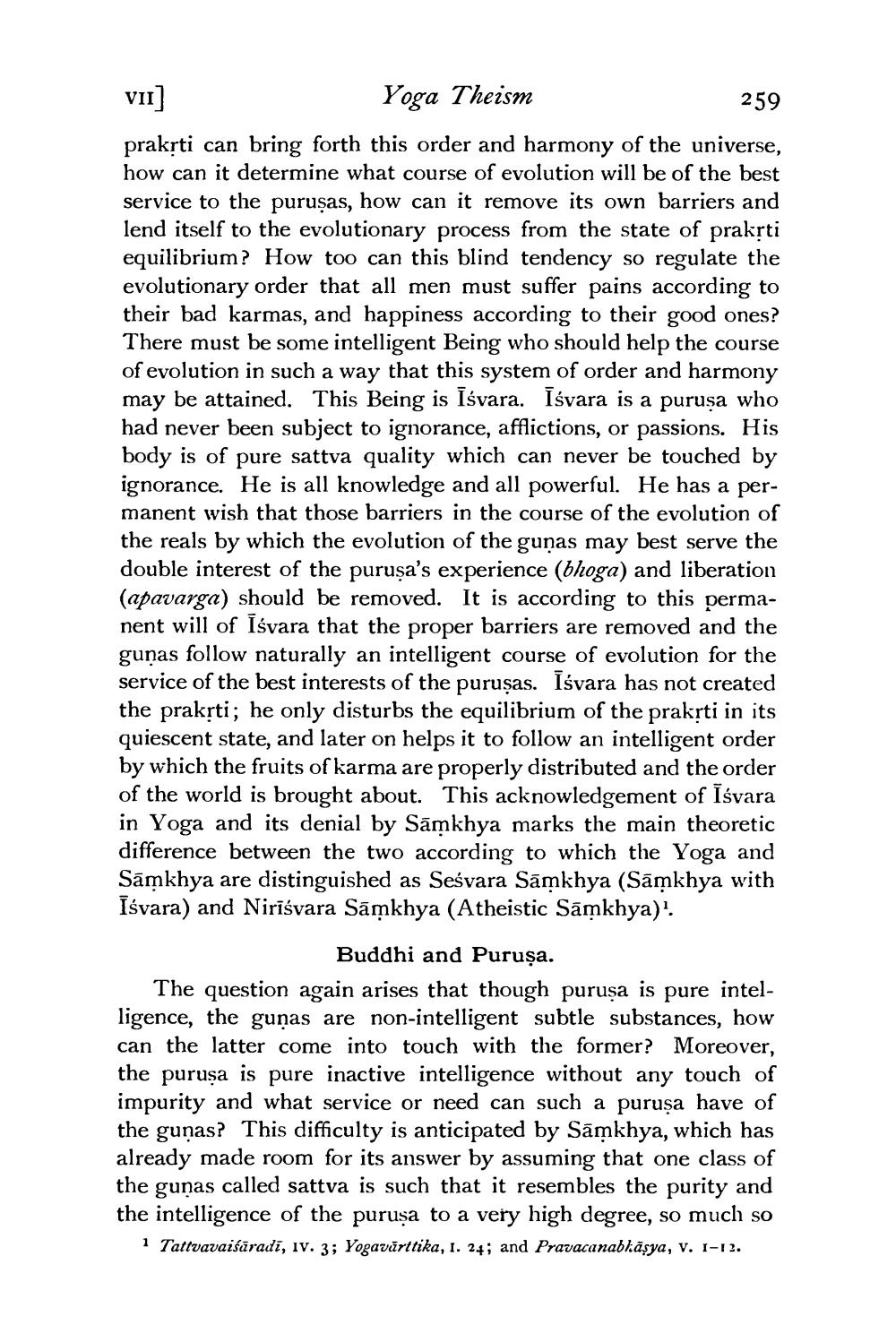________________
VII]
Yoga Theism
prakṛti can bring forth this order and harmony of the universe, how can it determine what course of evolution will be of the best service to the purusas, how can it remove its own barriers and lend itself to the evolutionary process from the state of prakṛti equilibrium? How too can this blind tendency so regulate the evolutionary order that all men must suffer pains according to their bad karmas, and happiness according to their good ones? There must be some intelligent Being who should help the course of evolution in such a way that this system of order and harmony may be attained. This Being is Īsvara. Īśvara is a purusa who had never been subject to ignorance, afflictions, or passions. His body is of pure sattva quality which can never be touched by ignorance. He is all knowledge and all powerful. He has a permanent wish that those barriers in the course of the evolution of the reals by which the evolution of the gunas may best serve the double interest of the purusa's experience (bhoga) and liberation (apavarga) should be removed. It is according to this permanent will of Isvara that the proper barriers are removed and the gunas follow naturally an intelligent course of evolution for the service of the best interests of the puruṣas. Īsvara has not created the prakṛti; he only disturbs the equilibrium of the prakṛti in its quiescent state, and later on helps it to follow an intelligent order by which the fruits of karma are properly distributed and the order of the world is brought about. This acknowledgement of Īsvara in Yoga and its denial by Samkhya marks the main theoretic difference between the two according to which the Yoga and Samkhya are distinguished as Seśvara Samkhya (Samkhya with Iśvara) and Niriśvara Samkhya (Atheistic Samkhya)'.
259
Buddhi and Purușa.
The question again arises that though purusa is pure intelligence, the gunas are non-intelligent subtle substances, how can the latter come into touch with the former? Moreover, the purusa is pure inactive intelligence without any touch of impurity and what service or need can such a purușa have of the gunas? This difficulty is anticipated by Samkhya, which has already made room for its answer by assuming that one class of the gunas called sattva is such that it resembles the purity and the intelligence of the purusa to a very high degree, so much so
1 Tattvavaiśāradī, IV. 3; Yogavārttika, 1. 24; and Pravacanabkāṣya, V. 1–12.




